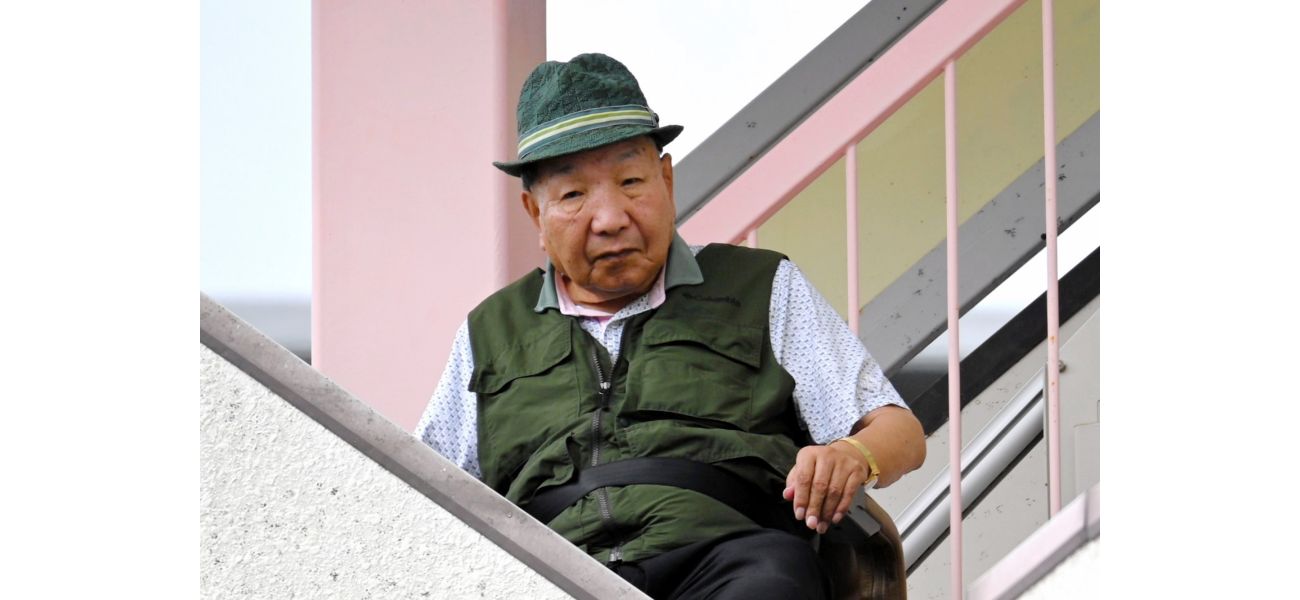After nearly 50 years on death row, an 88-year-old man has been found not guilty of murder.
In 1968, the ex-boxer was convicted of murder.
September 26th 2024.

Iwao Hakamada, a man who has spent almost five decades on death row, recently had his conviction overturned. He was believed to have the longest time spent on death row in the world. The 88-year-old was convicted in 1968 for the murder of his boss, the boss's wife, and their two teenage children in Japan. After serving 46 years on death row, a retrial was ordered in 2014 and he was finally released from jail. It has been a long and arduous journey for Hakamada and his family, especially his 91-year-old sister Hideko, who has tirelessly campaigned for his innocence over the years.
It took a decade for the retrial to finally take place, during which time Hakamada has been living with his sister Hideko. This week, after a lengthy legal process, a judge at the Shizuoka District Court declared Hakamada innocent. This ruling came after the judge criticized the use of inhumane interrogation tactics that were used to force a confession from Hakamada. He had initially denied the murders, but after being subjected to brutal police interrogations, including physical abuse, he admitted to the crimes. However, he later retracted his confession and maintained his innocence throughout the trial.
The latest ruling also revealed that investigators had tampered with evidence by getting blood on Hakamada's clothes and then hiding them in a tank of miso. His lawyers had argued that DNA tests on the bloodstained clothing showed that the blood did not belong to Hakamada. Unfortunately, due to his ill health, Hakamada was not able to attend the court hearing, but his sister was present and bowed in front of the judge when his innocence was declared. In an interview before the hearing, she expressed her desire to finally see justice served for her brother and put an end to the years of fighting.
After the court's decision, Hideko went to inform her brother, who was not aware of the verdict yet. Supporters had removed the batteries from his television remote control to prevent him from watching the live broadcast. However, he was later seen leaving his home for a walk, dressed in a short-sleeved shirt and a green hat. His supporters, wearing t-shirts with the words "Free Hakamada Now," gathered outside the court and expressed their relief at the verdict. They also acknowledged the need for reform in Japan's criminal justice system, especially after such a long and drawn-out case.
Amnesty International, a human rights group, hailed the court's decision as a pivotal moment for justice and called for the abolishment of the death penalty in Japan. They also mentioned that, according to their annual report, around 55 countries still have the death penalty, with China carrying out the most executions. The report also revealed that in 2023, Iran had the highest number of executions, with at least 853 people put to death. However, Amnesty International also noted that 2023 saw the lowest number of countries record executions, with 16 in total. They also mentioned some positive changes, such as Pakistan repealing the death penalty for drug-related offenses and the abolishment of the mandatory death penalty in Malaysia.
Hakamada's case has not only shed light on the flaws in Japan's justice system but also sparked conversations about the death penalty in other countries. In Zimbabwe, the death penalty was recently abolished after the last execution took place in 2005. The president, who was once on death row himself, has been pushing for the end of this punishment. On the other hand, some countries, like Sri Lanka, have confirmed that they will not be signing any execution warrants, and others, like Zimbabwe, have agreed to abolish the death penalty altogether. It is a small step towards a more just and humane world, but it is a step in the right direction.
It took a decade for the retrial to finally take place, during which time Hakamada has been living with his sister Hideko. This week, after a lengthy legal process, a judge at the Shizuoka District Court declared Hakamada innocent. This ruling came after the judge criticized the use of inhumane interrogation tactics that were used to force a confession from Hakamada. He had initially denied the murders, but after being subjected to brutal police interrogations, including physical abuse, he admitted to the crimes. However, he later retracted his confession and maintained his innocence throughout the trial.
The latest ruling also revealed that investigators had tampered with evidence by getting blood on Hakamada's clothes and then hiding them in a tank of miso. His lawyers had argued that DNA tests on the bloodstained clothing showed that the blood did not belong to Hakamada. Unfortunately, due to his ill health, Hakamada was not able to attend the court hearing, but his sister was present and bowed in front of the judge when his innocence was declared. In an interview before the hearing, she expressed her desire to finally see justice served for her brother and put an end to the years of fighting.
After the court's decision, Hideko went to inform her brother, who was not aware of the verdict yet. Supporters had removed the batteries from his television remote control to prevent him from watching the live broadcast. However, he was later seen leaving his home for a walk, dressed in a short-sleeved shirt and a green hat. His supporters, wearing t-shirts with the words "Free Hakamada Now," gathered outside the court and expressed their relief at the verdict. They also acknowledged the need for reform in Japan's criminal justice system, especially after such a long and drawn-out case.
Amnesty International, a human rights group, hailed the court's decision as a pivotal moment for justice and called for the abolishment of the death penalty in Japan. They also mentioned that, according to their annual report, around 55 countries still have the death penalty, with China carrying out the most executions. The report also revealed that in 2023, Iran had the highest number of executions, with at least 853 people put to death. However, Amnesty International also noted that 2023 saw the lowest number of countries record executions, with 16 in total. They also mentioned some positive changes, such as Pakistan repealing the death penalty for drug-related offenses and the abolishment of the mandatory death penalty in Malaysia.
Hakamada's case has not only shed light on the flaws in Japan's justice system but also sparked conversations about the death penalty in other countries. In Zimbabwe, the death penalty was recently abolished after the last execution took place in 2005. The president, who was once on death row himself, has been pushing for the end of this punishment. On the other hand, some countries, like Sri Lanka, have confirmed that they will not be signing any execution warrants, and others, like Zimbabwe, have agreed to abolish the death penalty altogether. It is a small step towards a more just and humane world, but it is a step in the right direction.
[This article has been trending online recently and has been generated with AI. Your feed is customized.]
[Generative AI is experimental.]
0
0
Submit Comment





